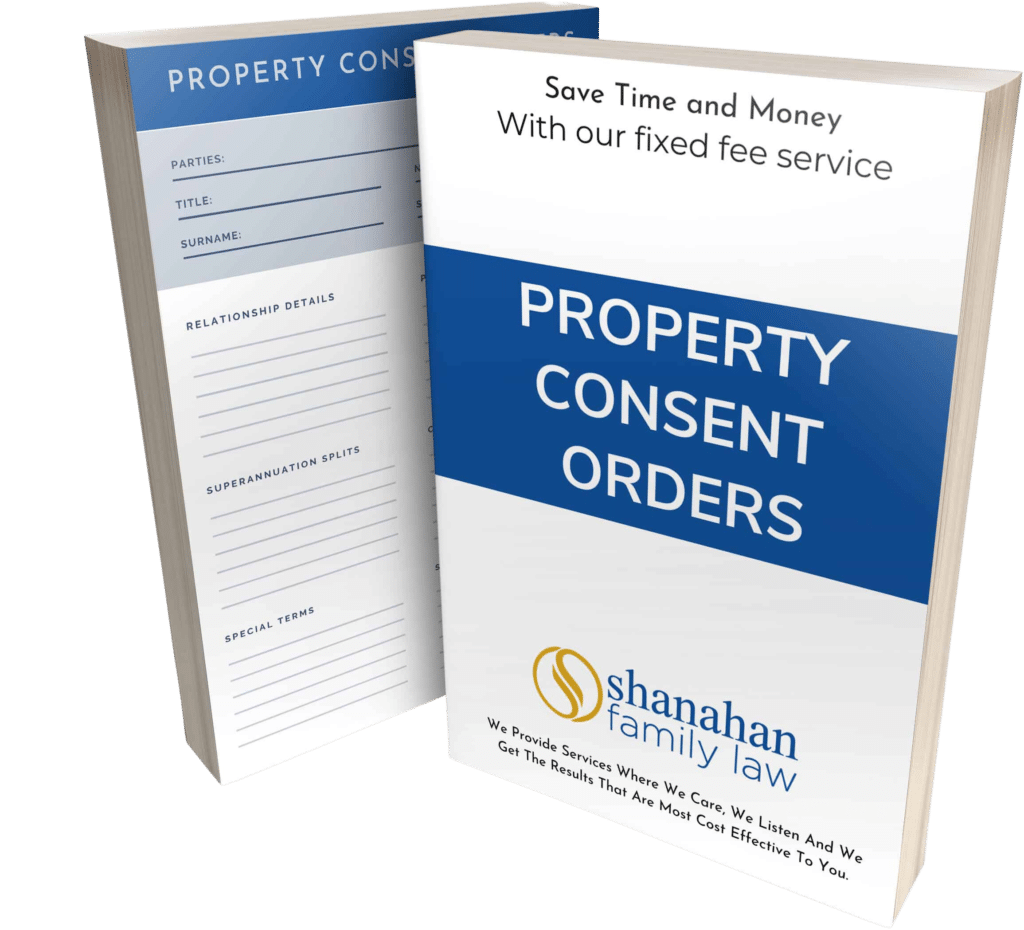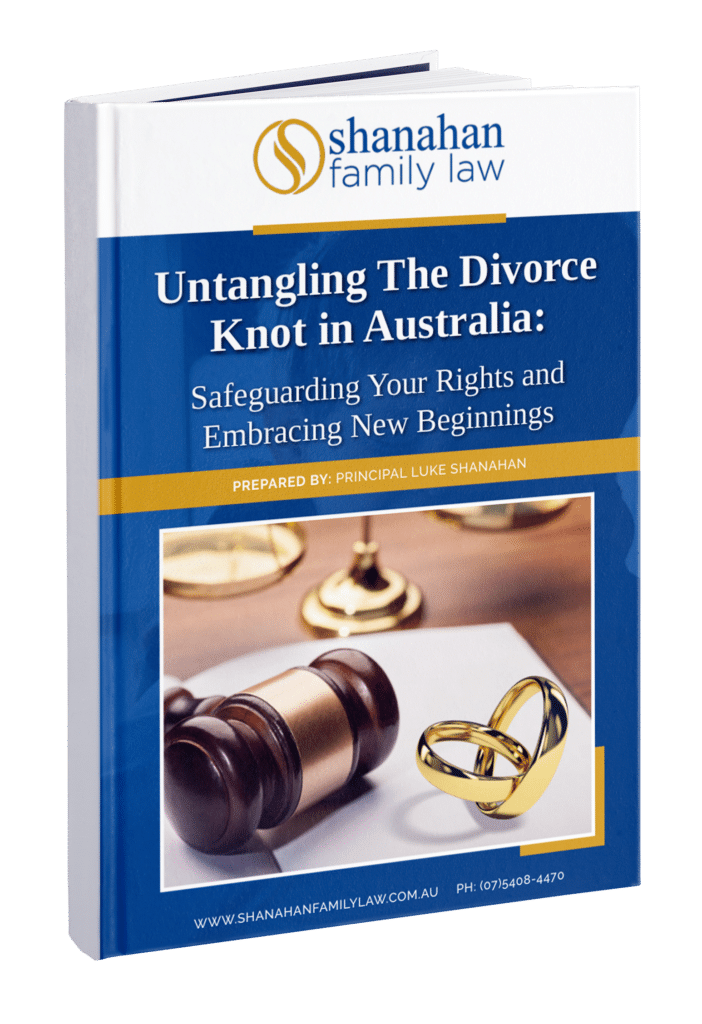Understanding Final Orders and Interim Orders in Family Law
Court orders bind parties to the order’s stipulations. Some orders are entered into by agreement, known as consent orders, while others result from litigation. Although
Our office will be closed on 18th April (Good Friday), 21st April (Easter Monday), and 25th April (ANZAC Day).
* Terms & Conditions may apply. Call for more details
Get expert advice on navigating your divorce with ease and confidence.

Dealing with a stressful family matter, whether it’s a recent separation, child custody dispute, property settlement, domestic violence, or filing for divorce, can feel overwhelming. You might be unsure of where to start or have concerns about upcoming court appearances. We’re here to support you through each step of the process.
We always recommend settling amicably with your former partner through a financial agreement if possible. Coming together to make mutually beneficial arrangements around asset division can save you time and much emotional pain.
Financial agreements must be organised within a year of your divorce or two years after a de facto relationship breakdown unless the court recognises special circumstances warrant a time extension.


A property consent order is a financial settlement between ex-partners approved by the family court and then made into a court order. Consent orders set up for property disputes have the same legal standing as any other court order.
The family court must recognise that the property agreement is fair before making a consent order. The guidelines set out in the Family Law Act determine what constitutes fairness.
The family court generally attempts to ensure there isn’t a need to come back and dispute when making consent orders on property. Therefore, it is worth getting a good family lawyer to work with upfront.
Consent orders are difficult to remove once granted. After all, the court doesn’t want court orders contested frivolously. However, you may have a consent order set aside for the following reasons.
A party may request that the court change or withdraw financial orders due to hardship from changes to their child’s circumstances. For example, a child may develop a health condition requiring expensive medical treatment that would cause the party significant financial hardship under the current orders.
Family law places a high burden on parties trying to contest a consent order. As such, arguing an order is inconvenient or challenging to carry out is not an excuse. However, you may have a case if you can prove an order is unworkable due to changed circumstances.
For example, if one party declares bankruptcy, a trustee vested with their property may apply to set aside an order. A creditor may also apply for a withdrawal due to an order impeding their ability to recover a debt.
The court uses a 4-step process to decide on a consent order's appropriate form.
The court must identify all the assets and liabilities in the marital asset pool. Any failure to fully disclose all relevant information at this stage by either party has serious legal consequences and will nullify the order.
At this stage, the court will determine the relative contributions of each party to the marriage. This calculation includes assets brought into the marriage and even assets received after separation.
Financial contributions are not the only important considerations. Non-financial contributions also count to protect the interests of a party with fewer financial means. Non-financial contributions may include child-rearing, homemaking, and renovations to the marital home.
The court order must account for the parties’ future needs. Here, the court will consider as many factors as it deems relevant, including:
Future earning capacity;
Child-rearing obligations;
Age and health;
The financial conditions of any new relationship.
The final step is for the court to review the order and ensure its practical effect is just and equitable for both parties. Without this condition, the court will revise the order.
This dedication to a fair division of property makes consent orders stricter than a binding financial agreement which offers spouses more latitude over what terms they set out.
Consent orders and binding financial agreements are both legally binding financial arrangements but have different requirements. The primary difference is that consent orders involve applying to the court, which means that the order must meet the court’s strict standard of fairness.
Parties establish binding financial agreements without the court’s oversight. However, to make such an agreement a legal contract, both parties must receive independent legal advice and certify that they understand the agreement’s implications on their interests. Without the requirement for a just and equitable result, binding financial agreements can be more flexible but potentially create an unfair outcome.


Property Consent orders protect spouses seeking a divorce by enforcing your right to a fair property division. Obtain legal advice from a specialist family lawyer before signing property consent orders or entering any property agreement. Anyone looking to secure court orders must follow the application procedure correctly.
Shanahan Family Law will ensure you receive the financial support you need to move forward with your life after divorce. Contact us today for an initial consultation to understand your options.
Even a joint divorce application can be daunting, let alone when considering a divorce. Perhaps you have questions about submitting your application to the courts or aren’t sure where to start. We’re here to help guide you through the process.
As principal solicitor of Shanahan Family Law in Maroochydore, Luke Shanahan is a reliable and experienced Sunshine Coast family law expert, offering compassionate support to people and families experiencing the most difficult circumstances through a divorce or separation. Whether you’re seeking help with child support, parenting matters, divorce, property consent orders, financial agreements, domestic violence, joint applications for divorce, or the preparation of DIY affidavits and consent orders, Luke can help.
As sad as it is to see couples and families split, he feels privileged to be able to help his clients find a better life through their family law services. “I believe we all deserve a second chance at finding a better life, and if this is through a divorce, then we will do everything we can to ensure our client’s success through whatever means.”

Trustindex verifies that the original source of the review is Google. Beyond gratefulTrustindex verifies that the original source of the review is Google. The team was very helpful in fostering and maintaining a good relationship and working with us for a final outcome. All involved listened and help guide through what was an unknown process.Trustindex verifies that the original source of the review is Google. Worth every dollar. Straight to the point with every effort to get the job done Not to mention how understanding and friendly all the staff. Thank you all for your amazing help.Trustindex verifies that the original source of the review is Google. Shanahan Family Lawyer, are not just knowledgeable and professional they also care about your situation. It felt good having someone on my side and going the extra mile to achieve the outcomes I was needing.Trustindex verifies that the original source of the review is Google. Thank you to Danielle O’Connor and the team for helping me get through legal times! Couldn’t recommend enoughTrustindex verifies that the original source of the review is Google. Shanahan Family Law made the process for me very quick and easy. They explained everything to me in a way I could understand. Thank youTrustindex verifies that the original source of the review is Google. There will never be enough words to show my appreciation for the support and guidance that was shown to me from Danielle and all the team at Shanahan Family Law. They took me under their wing from the moment I walked through the door, and I felt safe, supported, heard, informed and above all I never felt alone. Luke and Danielle, there will never be enough words to describe just how thankful I am to you both for all the support and for making me feel empowered throughout this process.Trustindex verifies that the original source of the review is Google. Excellent professional service from LukeTrustindex verifies that the original source of the review is Google. In facing a relationship breakup, it was important to find the right help and support when I really needed it. I saw the near perfect reviews and wondered if a team could be as good as the reviews suggested? …Early on I realised yes, it can. In personally meeting with Luke, I also saw how a deep understanding of the legal field, coupled with a very competent and compassionate team is why good things can emerge from tough situations. Thank you Luke, Clare and Katrina for looking after me when I needed it most.
Are you facing uncertainty with your property division post-separation? Shanahan Family Law is here to guide you through obtaining Property Consent Orders, ensuring a fair and legally binding agreement. Protect your assets and peace of mind with expert legal support. Take the first step towards a secure future today.
Court orders bind parties to the order’s stipulations. Some orders are entered into by agreement, known as consent orders, while others result from litigation. Although
What is a consent orders Consent orders are an important part of separations and divorces. But what exactly is a consent order? It’s a legally
Are you separated and need to finalise your property settlement? You might consider using consent orders when you and your ex-partner agree to split your

Through their family law Sunshine Coast services, Shanahan Family Law believes in giving everyone a head start. The passionate staff at Shanahan Family Law Maroochydore is committed to bringing you a better life with their extensive experience in law. Contact our Maroochydore office for a discovery call.